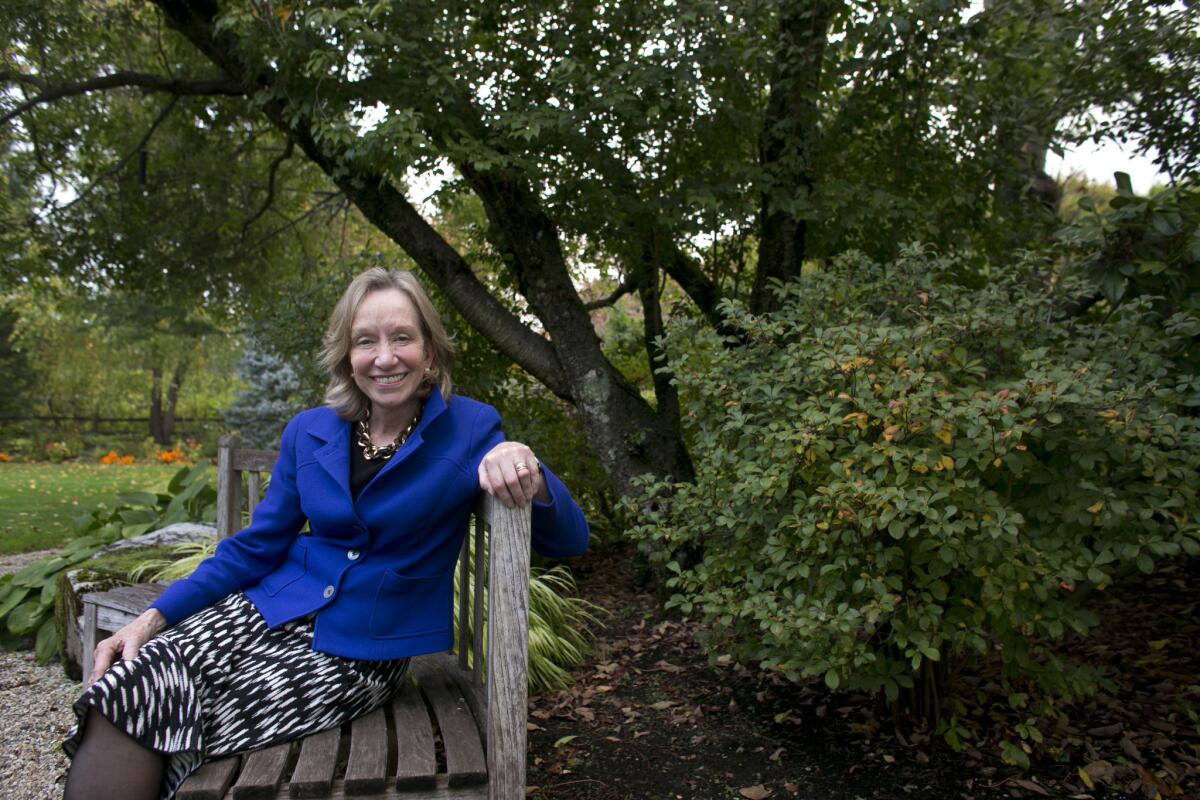Presidential historian Doris Kearns Goodwin on Robert Schenkkan’s LBJ

Before attending the world premiere of Robert Schenkkan’s “The Great Society” at the Oregon Shakespeare Festival, Times theater critic Charles McNulty asked presidential historian and biographer Doris Kearns Goodwin for her appraisal of “All the Way,” the Tony-winning play that began this two-part dramatic study of Lyndon B. Johnson’s presidency.
I’m curious to know what you thought of “All the Way” and whether Bryan Cranston, who won a Tony for his performance as LBJ, lived up to the memory of the man you once worked for.
I was blown away by “All the Way.” It captured my interest and emotions from start to finish, even as it presented an extraordinarily layered account of the different factions in both the civil rights movement and the Congress. And Bryan Cranston was the man I knew when I was in my twenties -- a veritable force of nature. Moving perpetually around the stage, his voice shifting from soft to loud, Cranston exuded LBJ’s volcanic energy, crudeness, brilliance, self-pity, and most importantly, his deep convictions about civil rights. It is clear that Robert Schenkkan delved deeply into the history of the time, for it was presented so well and so honestly.
“The Great Society” picks up where “All the Way” left off. Any thoughts in advance on the dramatic scope of this play?
I am looking forward to “The Great Society,” which will inevitably deal with the great triumphs of 1965 -- Medicare, federal aid to education, public broadcasting, Head Start, etc., and then simultaneously, of course, the escalation of the war in Vietnam. Triumph and tragedy.
Your book “Team of Rivals” inspired Steven Spielberg’s film “Lincoln,” written by Tony Kushner. Can you name another president who you think is ready for his dramatic close-up?
It was such a great adventure to work with Steven Spielberg on “Team of Rivals,” and happily another adventure is set to begin, for he has optioned the rights to my most recent book on Theodore Roosevelt and William Howard Taft, which centers on their long friendship that eventually ruptured when they ran against each other for president in 1912.
Twitter: @CharlesMcNulty
More to Read
The biggest entertainment stories
Get our big stories about Hollywood, film, television, music, arts, culture and more right in your inbox as soon as they publish.
You may occasionally receive promotional content from the Los Angeles Times.











